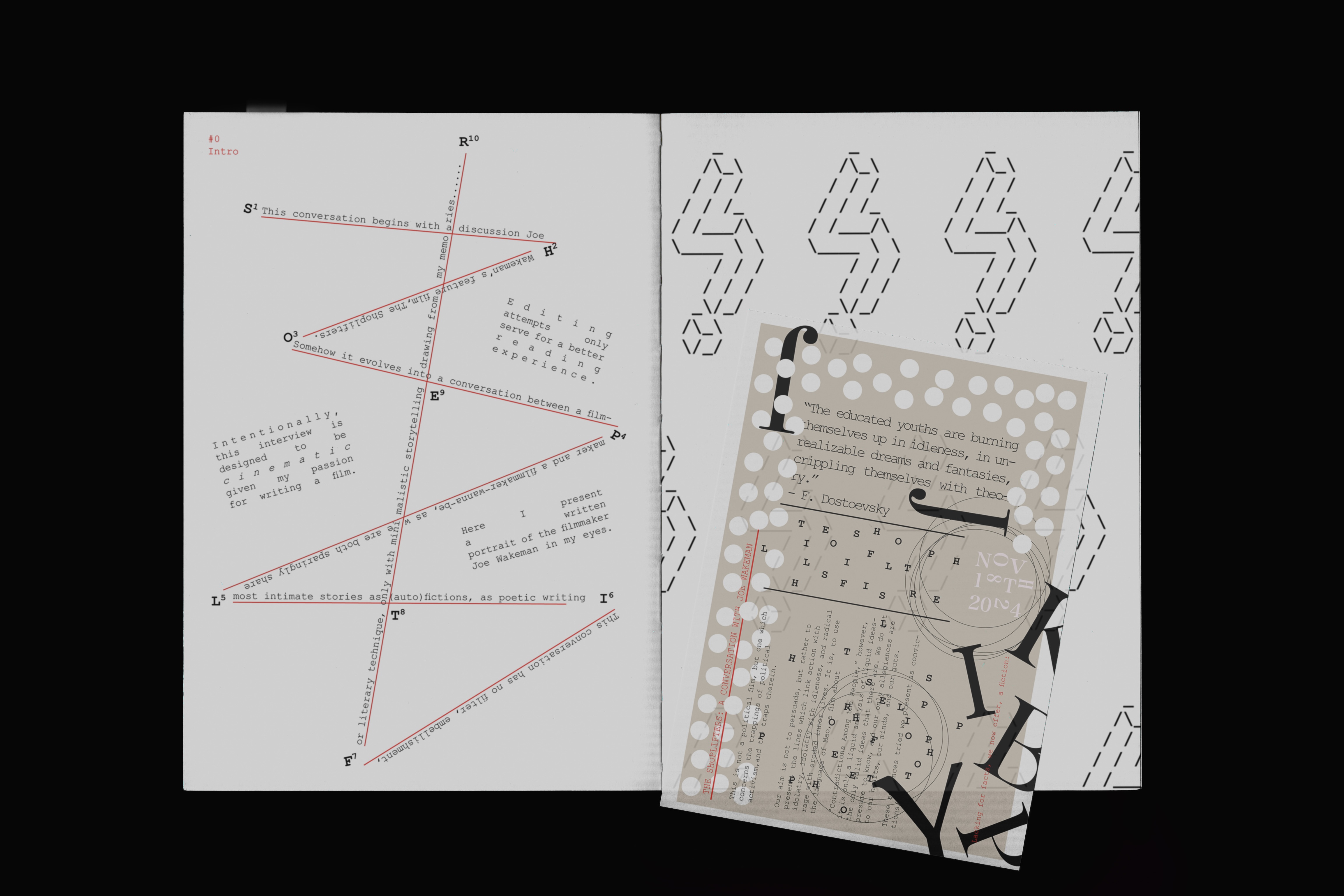The Shoplifters
2024
This conversation begins with a discussion on Joe Wakeman’s feature film, The Shoplifters. A video artist based in Brooklyn, NY. Somehow it evolves into a conversation between a filmmaker and a filmmaker-wanna-be, as we are both sparingly sharing our most intimate stories as (auto)fictions, as something poetic.
Full interview upon inquiry.
Full interview upon inquiry.


